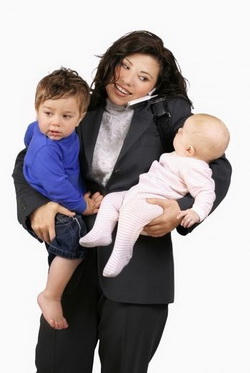The woman's age greatly affects the outcome of an IVF procedure. Currently, some clinics in the United States limit women of ages 45 and above from using their own eggs and are advised to use donor eggs instead. IVF and age are two factors that greatly affect each other. As a woman ages, her chance of conceiving the natural way rapidly decreases while her chance of getting pregnant through IVF slowly declines.

Pregnancy in 20's and early 30's
Women in their 20's and early 30's who are sexually active and not using contraceptives have 20 – 25% chance of getting pregnant every month. Normally, a woman is born with all the number of eggs available for her lifetime. A woman in her 20's has higher percentage of having lots of genetically normal eggs. As the woman gets older these normal eggs decrease in number, which is why infertility problems are most common in women at age 30 and above.
Pregnancy in 30's to 35
When the woman reaches the age of 30, the chances of getting pregnant naturally decreases. From 20-25% possibility, the chances to conceive naturally go down to 15% every month. Women who are having trouble conceiving for at least 9 months of unprotected sex should consider seeking medical help.
IVF and age over 35
Women over 35 years old who are unable to conceive after 6 months of trying naturally and have exhausted all other infertility treatments should consider undergoing IVF procedure. IVF and age do not go along very well. But at this age, women have greater chances of conceiving through an IVF treatment compared to older women. At this age pregnancy risk of birth defects and miscarriages are also relatively high.
IVF and age over 40
Women over 40 have only 5% chance of getting pregnant naturally per month. With an IVF procedure, they only have 10% chance of getting pregnant per cycle. As mentioned earlier, as women age the number of normal eggs produced decreases. This is the main reason why women at their 40's are unable to conceive. Studies show that 90% of eggs produced at age 40 are genetically abnormal and miscarriage rate is around 33%. Because of this, most doctors advise women whose age is over 40 to use donated eggs instead. Age alone does not cause an IVF failure. But other risk factors or complications associated with age including high blood pressure, diabetes, and heart problems endanger both the lives of the mother and the baby.
IVF and age over 45
When a woman reaches 45, chances of getting pregnant is so slim that she only has 1% chance of conceiving using her own eggs. Most successful IVF pregnancies for women aged over 45 are from donated eggs. At this age, risks in birth abnormalities and miscarriages are as high as 50%. Pregnant women above 45 are usually closely monitored by their doctors to avoid severe complications that may lead to miscarriages.
IVF and age factor cannot be separated. The age variable greatly contributes to the success or failure of the treatment.
